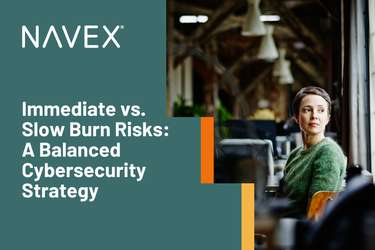The Serious Fraud Office (SFO) has recently published new “Corporate Co-operation Guidance” with the intention of providing transparency into what organisations might expect if they self-report fraud to the SFO. Whether the guidance actually achieves this purpose is still up for question and shall be explored further.
Does the guidance increase transparency in relation to the benefits of Deferred Prosecution Agreements?
A Deferred Prosecution Agreement (DPA) is an agreement reached between the SFO and an organisation which could be prosecuted. The agreement allows for prosecution to be suspended for a certain period of time whilst the organisation meets certain conditions set out in the DPA. At present, it seems that DPAs are increasing in popularity with the SFO - a trend that has left legal advisors and in-house legal teams questioning the true benefits of DPAs and self-reporting wrongdoing.
The new guidance does not confirm whether there could be circumstances in which, even if the evidential test is met, a decision to self-report wrongdoing could lead to no further action by the SFO.
It is interesting that the new guidance does not confirm whether there could be circumstances in which, even if the evidential test is met, a decision to self-report wrongdoing could lead to no further action by the SFO. The guidance confirms that genuine and proactive cooperation will be a relevant consideration in a charging decision, but retains full discretion to determine the outcome dependent “upon the particular facts and circumstances” of each case.
Comparably, the U.S. Department of Justice’s (DOJ) FCPA Corporate Enforcement Policy allows an organisation that voluntarily discloses wrongdoing, to create the rebuttable presumption that no additional action will be taken. The DOJ has also produced a guide for organisations considering self-reporting, along with a detailed explanation as to the underlying reason for decisions made by the Department.
Read More: DOJ’s Approach to Evaluating Organizations Evolves Along with Maturing Compliance Programs
In contrast, the SFO chooses not to publish any details about organisations self-reporting and those that have to led to DPA’s or prosecutions. To increase certainty for organisations considering self-reporting, it would be useful if the SFO produced a similar guide.
New Guidance for Organisations Considering Self-Reporting?
Timing
The new guidance suggests that there is increased flexibility when any wrongdoing should be reported. It was previously thought that self-reporting should occur as soon as the organisation realises there is a problem. However it is now suggested that “reporting within a reasonable time of the suspicions coming to light; and preserving available evidence and providing it promptly is an evidentially sound format”. Whilst on the face of it, this does appear to allow organisations some flexibility as to when wrongdoing should be reported, it is still rather time sensitive. The expectation is that reporting should occur within a reasonable time of “suspicions” which is likely to occur before the organisation has actual knowledge of offending, so at a fairly early stage.
Interviewing Witnesses
When organisations conduct internal investigations into potential corruption or wrongdoing, it has always been questionable as to whether key witnesses should be interviewed prior to reporting to the SFO. The new guidance states that to avoid any prejudice to the internal investigation organisations should “consult in a timely way with the SFO before interviewing potential witnesses or suspects, taking personnel/HR actions or taking other overt steps”.
However, whilst the new guidance suggests that the SFO should be contacted before key witnesses are interviewed, it also seems to appreciate the reality. The new guidance does consider the DPA Code of Practice which in contrast suggests that cooperation will include “identifying key witnesses, disclosing their accounts and the documents shown to them”. Given that the new guidance conflicts with the DPA code, it is difficult for organisations to know which guidance takes precedence. It seems that in an effort to be prescriptive and transparent, the SFO have caused further confusion as to whether organisations should interview witnesses before consulting with them.
The SFO have caused further confusion as to whether organisations should interview witnesses before consulting with them.
Overall the new guidance does state that genuine cooperation is inconsistent with “putting suspects on notice” and creating a situation where evidence is tampered with. Organisations should consider this when assessing if they should interview witnesses before contacting the SFO. Whilst the SFO should be consulted in a timely manner before interviewing potential witnesses, there may be situations where the organisation needs to conduct interviews to understand the potential issues and decide whether a self-report should be made.
Conclusion
It seems that in an effort to increase transparency for organisations considering co-operating with the SFO, in certain areas they may have caused further confusion. Whilst certain elements of the new guidance is helpful, it seems that the SFO are verging on placing unrealistic burdens on organisations, without in turn offering the incentive through co-operation deals. The SFO could learn lessons from the DOJ as they offer organisations both clarity on self-reporting and the incentive to co-operate. It will be interesting to see if this guidance actually encourages more organisations to co-operate with the SFO or if it has the opposite effect.






